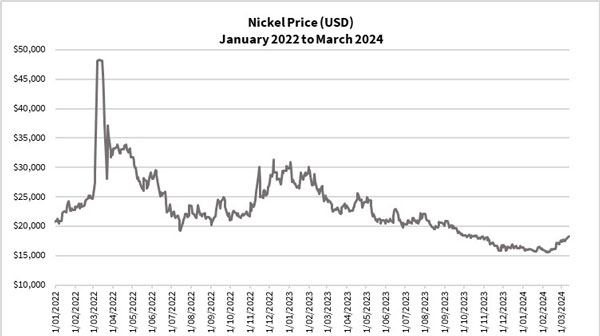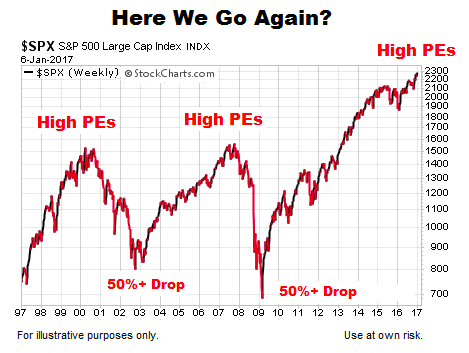Emerging Market Stock Surge: A Contrarian Investment Opportunity?

Table of Contents
The Drivers Behind the Emerging Market Stock Surge
Several key factors are contributing to the current upswing in emerging market stocks, presenting compelling reasons for investors to consider this asset class.
Economic Growth and Development
Many emerging markets are experiencing robust economic growth, fueled by several powerful trends:
-
Rising Middle Class and Increased Consumer Spending: A burgeoning middle class in countries like India and across Southeast Asia is driving significant increases in consumer spending, boosting demand for goods and services. This fuels economic expansion and corporate profits.
-
Infrastructure Development and Technological Advancements: Massive investments in infrastructure projects—from transportation networks to digital infrastructure—are creating significant economic opportunities and attracting foreign investment. Technological advancements further accelerate this growth.
-
Favorable Demographics and a Young, Growing Workforce: Many emerging markets boast a young and rapidly expanding workforce, providing a large pool of productive labor and fueling economic dynamism. This demographic advantage positions these economies for sustained growth.
-
Government Initiatives Promoting Economic Growth: Many emerging market governments are actively implementing policies designed to stimulate economic growth, including tax incentives, deregulation, and investment in education and skills development. These proactive measures further enhance the investment climate.
Geopolitical Shifts and Diversification
Geopolitical shifts are reshaping global investment flows, with emerging markets increasingly attracting capital:
-
Reduced Reliance on Traditional Developed Markets: Investors are seeking to diversify their portfolios beyond traditional developed markets, reducing their dependence on economies like the US and Europe. Emerging markets offer a compelling alternative.
-
Increased Investment in Less Correlated Assets: Emerging market stocks often exhibit lower correlation with developed market assets, providing diversification benefits and potentially reducing overall portfolio risk.
-
Potential for Higher Returns Compared to Developed Markets: Historically, emerging markets have offered the potential for higher returns than developed markets, although with correspondingly higher risk.
-
Opportunities Arising from Regional Conflicts and Trade Disputes: While inherently risky, geopolitical realignments can create unique investment opportunities in certain emerging markets that benefit from shifting global trade patterns.
Attractive Valuations and Undervalued Assets
Compared to developed market equities, many emerging market stocks appear attractively valued:
-
Comparison to Historical Valuations and Developed Market Peers: Analysis of price-to-earnings ratios and other valuation metrics suggests that some emerging market sectors are trading at discounts relative to their historical valuations and compared to similar sectors in developed markets.
-
Identification of Undervalued Sectors: Sectors like technology and infrastructure in certain emerging markets show significant potential for growth and capital appreciation, potentially offering undervalued opportunities.
-
Potential for Significant Capital Appreciation: The combination of strong economic growth and relatively low valuations suggests a high potential for capital appreciation in selected emerging market stocks.
-
Analysis of Price-to-Earnings Ratios and Other Valuation Metrics: A detailed analysis of key financial ratios is crucial for identifying undervalued companies and sectors within emerging markets.
Navigating the Risks of Emerging Market Investments
While the potential rewards are significant, investing in emerging markets comes with inherent risks:
Political and Economic Instability
Political and economic instability poses a significant challenge:
-
Currency Fluctuations and Inflation Risks: Emerging markets are often subject to greater currency volatility and higher inflation rates than developed markets, impacting returns.
-
Political Uncertainty and Regime Changes: Political instability, including regime changes and policy shifts, can create uncertainty and negatively affect market performance.
-
Regulatory Hurdles and Bureaucratic Inefficiencies: Navigating regulatory complexities and bureaucratic processes can be challenging for foreign investors in some emerging markets.
-
Potential for Social Unrest and Civil Conflicts: Social and political unrest can disrupt business operations and negatively impact investment returns.
Liquidity and Market Volatility
Liquidity and volatility are key concerns:
-
Lower Trading Volumes Compared to Developed Markets: Trading volumes in emerging markets are often lower than in developed markets, making it more difficult to buy or sell assets quickly.
-
Greater Price Swings and Increased Market Volatility: Emerging market stocks tend to exhibit greater price volatility than their developed market counterparts.
-
Difficulty in Exiting Positions Quickly: The lower liquidity can make it challenging to exit positions rapidly if market conditions deteriorate.
-
Importance of Diversification and Risk Management: Diversification across multiple markets and asset classes is crucial to mitigate the risks associated with market volatility and illiquidity.
Environmental, Social, and Governance (ESG) Concerns
ESG factors are increasingly influencing investment decisions:
-
Growing Investor Focus on Sustainability and Ethical Considerations: Investors are increasingly integrating ESG factors into their investment strategies, favoring companies with strong environmental, social, and governance profiles.
-
Identifying Companies with Strong ESG Profiles: Due diligence is crucial to identify companies with robust ESG practices and minimize potential risks.
-
Assessing Environmental Risks and Social Impact: Investors must carefully assess the environmental and social impacts of their investments in emerging markets.
-
Opportunities in the Green Economy and Sustainable Development: The transition to a green economy presents significant investment opportunities in emerging markets.
Strategies for Successful Emerging Market Investing
Successful emerging market investing requires a well-defined strategy:
Diversification Across Markets and Sectors
Diversification is paramount:
-
Investing Across Multiple Emerging Markets: Don't put all your eggs in one basket. Spread your investments across various emerging markets to reduce risk.
-
Spreading Investments Across Different Sectors: Diversify across different sectors (e.g., technology, consumer goods, financials) to reduce reliance on any single industry.
-
Utilizing ETFs and Mutual Funds for Broader Diversification: Exchange-traded funds (ETFs) and mutual funds offer a convenient way to diversify across a wide range of emerging market stocks.
Thorough Due Diligence and Research
Thorough research is essential:
-
Understanding Macroeconomic Trends and Company-Specific Factors: Conduct in-depth research to understand the macroeconomic trends affecting each market and the specific factors influencing individual companies.
-
Assessing Financial Statements and Management Quality: Scrutinize financial statements and assess the quality of management teams before investing.
-
Seeking Expert Advice from Financial Professionals: Consider seeking guidance from experienced financial advisors specializing in emerging markets.
Long-Term Investment Horizon
A long-term perspective is crucial:
-
Accepting Short-Term Volatility for Long-Term Growth Potential: Be prepared for short-term volatility, recognizing that emerging markets can experience significant price swings.
-
Avoiding Impulsive Trading Decisions Based on Short-Term Market Fluctuations: Resist the urge to make impulsive trading decisions based on short-term market movements.
Conclusion
The surge in emerging market stocks offers a compelling contrarian investment opportunity, but careful consideration of the risks is crucial. While political and economic instability, liquidity concerns, and ESG factors present challenges, diversification, rigorous research, and a long-term investment horizon can significantly mitigate these risks. By understanding the drivers behind this market surge and employing a prudent investment strategy, investors can potentially capitalize on the substantial growth prospects of emerging markets. Start exploring the world of emerging market stocks and unlock potentially lucrative investment opportunities. Remember to consult with a financial advisor before making any investment decisions.

Featured Posts
-
 Emerging Market Stock Surge A Contrarian Investment Opportunity
Apr 24, 2025
Emerging Market Stock Surge A Contrarian Investment Opportunity
Apr 24, 2025 -
 Understanding High Stock Market Valuations Insights From Bof A
Apr 24, 2025
Understanding High Stock Market Valuations Insights From Bof A
Apr 24, 2025 -
 Zuckerberg And The Trump Era A New Phase For Meta
Apr 24, 2025
Zuckerberg And The Trump Era A New Phase For Meta
Apr 24, 2025 -
 California Gas Prices Soar Newsoms Plea For Oil Industry Cooperation
Apr 24, 2025
California Gas Prices Soar Newsoms Plea For Oil Industry Cooperation
Apr 24, 2025 -
 Sophie Nyweide Child Actor In Mammoth And Noah Dies At 24
Apr 24, 2025
Sophie Nyweide Child Actor In Mammoth And Noah Dies At 24
Apr 24, 2025
